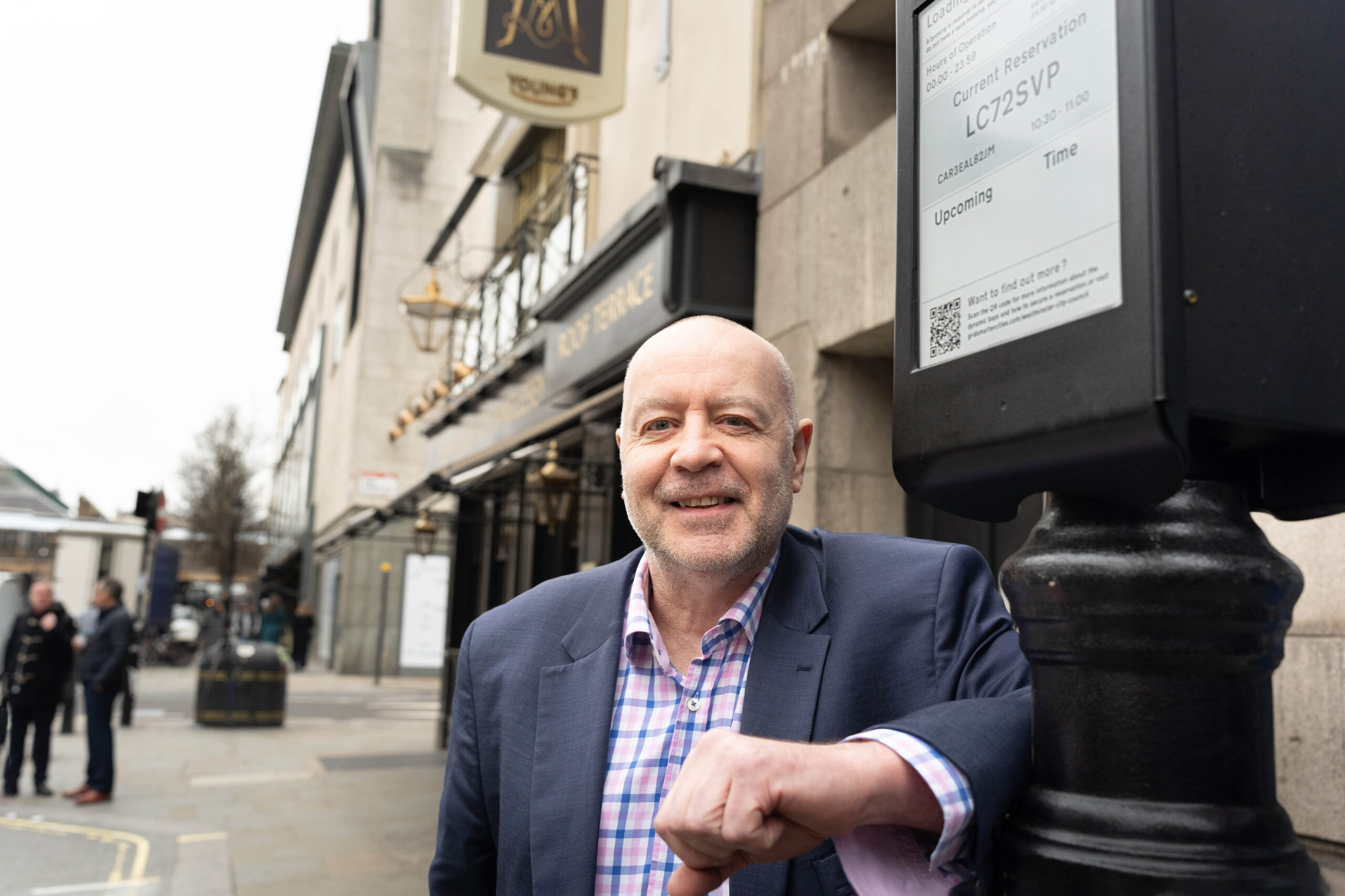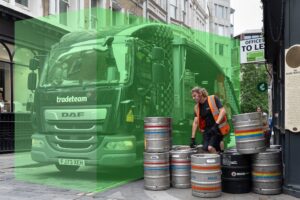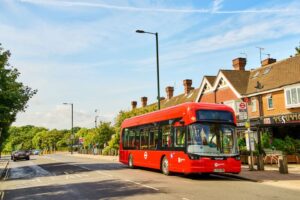The founder of kerbside management company Grid Smarter Cities has hailed 2024 as the year the company went from “lots of pilot projects” to “actually making a difference at the kerbside”.
Neil Herron (pictured) has pointed to a number of schemes delivered through the year, with six Local Authorities in London.
Its Kerb® product allows delivery drivers to remotely reserve loading and unloading slots at physical Permit Loading Bays, meaning they get surety of a space in advance. This reduces idling and search time and also allows them to park long enough to make onward deliveries by greener modes, such as by foot or cargo bike.
Meanwhile its Virtual Loading Bays (VLBs) enable easier access for delivery drivers who need to be closest to their delivery location for health & safety reasons. These digitally created pre-approved locations, booked via Kerb®, allow those with specific needs to load in areas where parking and loading may be traditionally prohibited.
“Think of our solution as a bit like overlaying a digital beach towel on a kerbside sun-lounger to reserve your spot in locations which don’t normally allow sun-bathing,” explained Mr Herron. “It allows restrictions such as yellow or red lines to be lifted specifically for bookings made via the platform for those vehicles with critical access needs and without the risk of a penalty charge notice.”
In February, Grid Smarter Cities worked with Southwark Council to deliver five permit loading bays on the Walworth Road, servicing local shops and businesses, including Tesco. They have all embraced the concept, taking advantage of the bookable slots with utilisation beyond the council’s expectations.
Shortly afterwards, in Westminster two bays in busy areas of the West End became bookable, initially for Electric Vehicles only but now, after requests from logistics companies, for all engine types. These bays have allowed longer stays at the kerbside which reduces emissions from polluting vehicles who benefit from knowing when, where and for how long they can dwell to load and unload.
“That deployment represented a major digital leap forward for councils to optimise kerbside management and for operators to undertake deliveries in a more efficient manner,” commented Mr Herron, adding that it, “Aligns with Westminster’s freight strategy enabling more walking freight in these areas, avoiding congestion and making it a safer environment for all.”
Grid Smarter Cities has also delivered solutions for London’s Cross River Partnership to support its Defra-funded Smarter Greener Logistics Kerbside Management Trial in multiple London Boroughs. In Lambeth, this involved launching two Virtual Loading Bays in March on The Cut in Waterloo to help improve access for servicing and delivery operators on this key, and notoriously busy route. Further bays were added in more boroughs to prove the concept in differing urban environments, such as the narrow Watling Street in the City of London in May. July’s activation saw more virtual bays added in Sheen Lane and The Quadrant in Richmond and Kentish Town Road and Morwell Street in Camden.
“For years we’ve been sharing lots of great ideas with councils and explaining the value of the fundamental and practical necessity of a properly managed kerbside,” Mr Herron continued. “2024 was the landmark year, thanks to the perfect alignment of policy, legislation, digitisation and enabling technology making our vision become a reality, actually making a difference at the kerbside.
“One of the things I’m most proud of is that we have created a solution for councils and operators – either physical or virtual – that is plug-and-play for them. It can address a small problem area or be taken to scale across a city. Furthermore, we’ve made sure it’s based around current legislation – not a solution that relies on the law catching up. VLBs don’t need a new traffic order either, just a quick check of the wording in the schedules, then it’s good to go.”
From a commercial operator’s perspective, the use of Kerb® is allowing industry to work in partnership with local authorities to more easily deploy the right solution in the right location, driving compliance and mutual wider economic and environmental benefits.
Mr Herron concludes: “Through 2024, we have proved both cities and commercial operators have been keen to use our fully customisable digital solution as they see our present deployments delivering real benefits. In 2025, Grid Smarter Cities will be expanding many more bays within existing schemes and also into other cities across the UK and around the world, who will enjoy the benefits of cleaner, more efficient and liveable places.”
(Picture – Grid Smarter Cities)
























